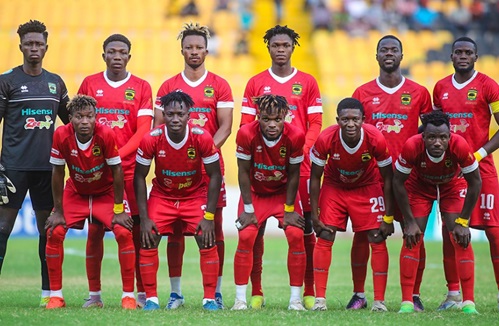The word menstruation is said to have originated from the Latin word “Mensis” which means month and also from the Greek word “Mene” which refers to the moon.
It is believed that the menstrual cycle was sort of related to the moon because the moon’s cycle also lasted 29 days.
Researchers say menstruation is also called Period because the word period is from the Latin word Periodus which means a recurring cycle.
Menstruation, although a natural phenomenon for a long period of time and probably ages, has been enveloped in so much secrecy because of the many stigma around it as well as the cultural and sometimes religious beliefs that surround it.
Many women around the world, because of the secrecy and stigma, find it difficult to open up about their period and issues around it.
Across many and different cultures, the phenomenon is stigmatised and seen as something dirty and impure.
Even societies that are seen as civilised sometimes use euphemisms like “time of the month”, “Red wedding” and “crimson tide”, all in an attempt to hide the shame that come with it.
Over time, women now do not only have to deal with the stigma around menstruation but they now have to deal with period poverty, coupled with the many unmentioned conditions that come with period.
World Menstrual Hygiene Day
In 2013, the Water, Sanitation and Hygiene (WASH United) set up the World Menstrual Hygiene Day to highlight the importance of good menstrual hygiene management to break the taboos surrounding menstruation.
The day, since 2014, has been marked on May 28 every year.
The day and month of world menstrual hygiene is a symbolic one as May is the 5th month of the year, which symbolises the average length of menstruation which is five days, while the number 28 symbolises the menstrual cycle which lasts averagely 28 days.
The day is not only an opportunity to create awareness but a day for developing countries like Ghana to strengthen the government’s accountability related to menstrual hygiene issues.
Civil society contribution
Civil society and advocates, on many occasions, and in many articles published in the various newspapers and online platforms, have called on the government to scrap taxes on sanitary pads as the sanitary tool has become expensive due to the economic downturn.
Some have also called on the government to provide free sanitary pads to pupils in basic schools so that it does not become a hindrance to their education.
Nonetheless, non-profit organisations such as the Gyabs Foundation, through the menstrual health and menstrual hygiene (M2H2 project), have been doing their best to not only provide sanitary tools for basic school pupils but to educate them on some conditions that come with period and how to handle them. Such organisations also distribute what they call dignity kits to help maintain good menstrual hygiene.
The Touching The Lives of Girls Foundation is also doing well to create awareness on menstrual hygiene and the importance of maintaining good hygiene regarding period while the The Sylvia Lawson Foundation (TSLF) also targets distributing sanitary pads which helps to reduce period cramps.
#WeAreCommitted
This year’s theme, just as last year’s, is #WeAreCommitted because if we are to collectively create a world where periods are a normal fact of life by 2030, commitment to both action and funding must remain high on the menstrual health and hygiene (MHH) agenda.
The fight against period poverty and creating awareness of conditions that come with period cannot be achieved at a go but it can be done through a continuous commitment to create awareness at a time in the community or wherever, giving support to organisations committed to ending period poverty.
While we stay committed to making menstruation a normal fact of life, let us also use various means and platforms to create awareness on the many conditions such as endometriosis, premenstrual dysphoric disorder (PMDD) and Amenorrhea, which have been associated with irregular periods.
The writer is a menstrual health and hygiene advocate and founder of the Menstrual Health and Menstrual Hygiene (M2H2) project.
Source: Graphiconline






